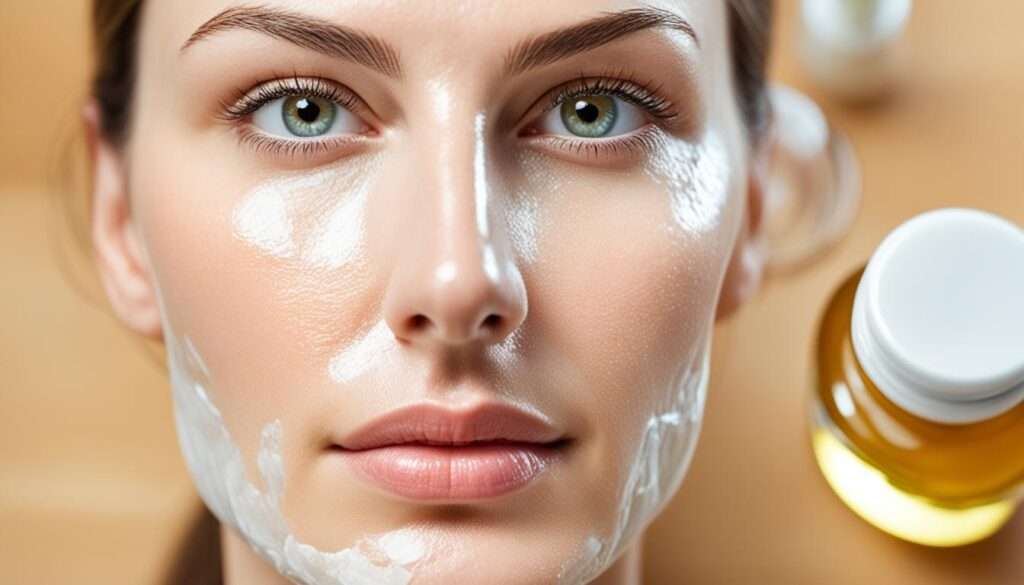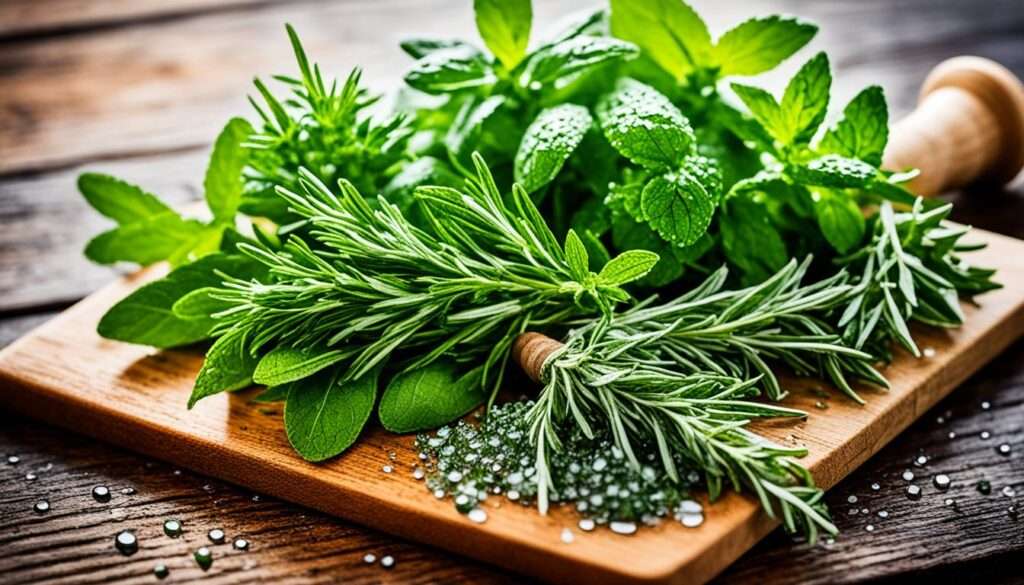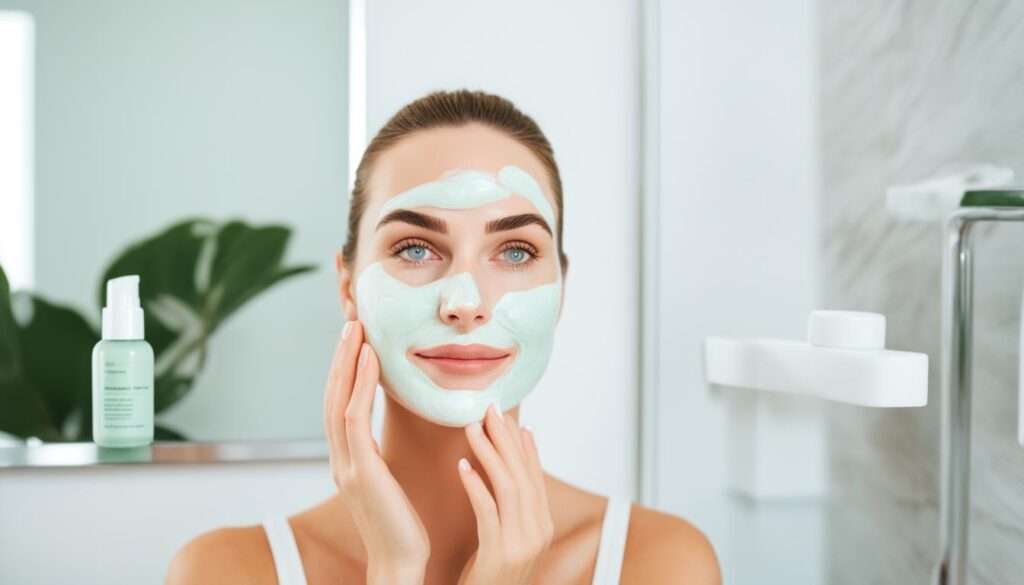
Taking care of oily skin can be challenging, but with these 7 little known secrets, you can achieve flawless skin. From customizing your skincare routine to understanding the role of diet and managing stress, these tips will help you achieve a balanced complexion. Discover the best products for oily skin and learn effective home remedies and expert advice for managing oily skin throughout the day.
Oily skin can be irritating to deal with, however it doesn’t have to be a constant battle. By including these expert secrets right into your skincare routine, you can effectively manage oily skin and accomplish a remarkable skin tone.
First off, customizing your skincare routine is essential when it comes to oily skin. This means selecting the right products that are specifically designed for your skin type. Look for cleansers that can effectively remove excess oil without stripping your skin of its natural moisture.
Next, moisturizing oily skin is a must. Contrary to popular belief, oily skin still needs hydration. Opt for lightweight, oil-free moisturizers that won’t clog your pores but will still keep your skin hydrated.
Additionally, taking note of your diet plan is type in regulating oily skin. Particular foods can worsen oiliness, while others can aid regulate it. Integrate foods rich in antioxidants and omega-3 fats into your diet for a healthier skin tone.
Stress can also contribute to oily skin, so discovering methods to take care of anxiety is very important. Attempt integrating stress-reducing techniques like meditation, exercise, or journaling into your everyday routine.
Finally, consulting from dermatologists and skin care professionals can provide useful insights right into managing oily skin. They can recommend customized therapies and strategies that target oiliness and advertise a balanced skin tone.
Key Takeaways:
- Customize your skincare routine by using products specifically designed for oily skin.
- Moisturize your oily skin with lightweight, oil-free moisturizers.
- Pay attention to your diet and incorporate foods rich in antioxidants and omega-3 fatty acids.
- Manage stress through techniques like meditation, exercise, or journaling.
- Seek advice from dermatologists and skincare professionals for specialized treatments and techniques.
With these 7 little known oily skin care secrets, you now have the tools to achieve flawless skin. Embrace a personalized skincare routine, make informed choices about your diet, and manage stress effectively. By integrating these secrets into your daily routine, you’ll be well on your way to maintaining a balanced complexion and saying goodbye to oily skin woes.
Understanding the Fundamentals of Oily Skin
To effectively care for oily skin, it’s important to understand the science behind it. Oily skin is characterized by an overproduction of sebum, a natural oil produced by the sebaceous glands. This excess oil can lead to a shiny complexion, clogged pores, and acne breakouts. By gaining a deeper understanding of oily skin and sebum production, you can tailor your skincare routine to effectively manage oiliness and achieve a balanced complexion.
The Science Behind Oily Skin and Sebum Production
Sebum production is a natural process that helps moisturize the skin and protect it from external aggressors. However, individuals with oily skin tend to have overactive sebaceous glands, leading to an excess production of sebum. This overproduction can be influenced by various factors, including hormonal imbalances, genetics, and environmental triggers.
Sebum is composed of fatty acids, wax esters, and triglycerides that are essential for maintaining the skin’s barrier function. While sebum is necessary for a healthy complexion, an excessive amount can result in oily skin. Those with oily skin often have larger and more active sebaceous glands, which can produce an increased amount of sebum.
Additionally, hormonal fluctuations, such as during puberty or menstruation, can stimulate sebum production. Androgens, the hormones responsible for the development of male characteristics, play a significant role in sebum production. Increased levels of androgens can trigger the sebaceous glands to produce more sebum, leading to oily skin.
Understanding the science behind sebum production allows you to better comprehend your skin’s unique characteristics and develop an effective skincare routine that addresses oiliness.
Common Misconceptions About Oily Skin
There are several misconceptions surrounding oily skin that can lead to ineffective skincare practices. It’s crucial to dispel these misconceptions and have accurate information about caring for oily skin.
- Myth: Oily skin doesn’t need moisturizing. Contrary to popular belief, even oily skin requires moisturization. Skipping moisturizer can actually exacerbate oiliness as the skin tries to compensate for the lack of hydration by producing more sebum. The key is to choose lightweight, oil-free moisturizers that won’t clog pores.
- Myth: Overwashing the face reduces oiliness. While it may seem logical to wash oily skin frequently, overwashing can strip the skin of its natural oils, leading to an overproduction of sebum to compensate. It’s best to cleanse the face twice a day with a gentle, foaming cleanser specifically formulated for oily skin.
- Myth: Oily skin doesn’t need sunscreen. Oily skin is still susceptible to sun damage, just like any other skin type. Using a lightweight, non-comedogenic sunscreen is essential to protect the skin from harmful UV rays and prevent premature aging.
By debunking these common misconceptions, you can make informed decisions about your skincare routine and effectively manage oily skin.

Customizing Your Skincare Routine for Oily Skin
When it comes to managing oily skin, a customized skincare routine is crucial. By tailoring your routine to meet the specific needs of oily skin, you can effectively manage oiliness and achieve a balanced complexion. In this section, we’ll explore two key aspects of a customized skincare routine for oily skin: selecting the right cleansers and understanding the importance of moisturizing.
Selecting the Right Cleansers to Manage Oiliness
Cleansing is an essential step in any skincare routine, especially for those with oily skin. The right cleanser can effectively remove excess oil, dirt, and impurities without stripping the skin. When selecting a cleanser for oily skin, look for the following key features:
- Gentle and non-comedogenic: Opt for a gentle cleanser that won’t irritate or clog your pores. Non-comedogenic formulas are specifically designed to prevent pore blockage, making them ideal for oily skin.
- Oil-control properties: Look for cleansers that contain ingredients like salicylic acid or benzoyl peroxide, which can help regulate oil production and reduce shine.
- Balancing and mattifying: Some cleansers are formulated to balance oil production and leave your skin with a matte finish. These can be particularly beneficial for those with extremely oily skin.
Remember to cleanse your face twice a day, in the morning and evening, to remove excess oil and keep your skin fresh. Avoid over-cleansing, as it can strip your skin of its natural oils and cause it to produce even more oil.
Read Also : Is Laser Therapy for Acne Scars Safe?
The Importance of Moisturizing Oily Skin
While it may seem counterintuitive, moisturizing is a crucial step in any skincare routine, even for oily skin. Skipping moisturizer can actually worsen oiliness, as your skin may compensate by producing more oil to hydrate itself. Here are some key considerations when choosing a moisturizer for oily skin:
- Lightweight and oil-free: Look for moisturizers that are specifically formulated for oily skin and have a lightweight, non-greasy texture. These moisturizers provide hydration without overwhelming your skin with excess oil.
- Non-comedogenic: Just like with cleansers, opt for non-comedogenic moisturizers to prevent pore blockage and potential breakouts.
- Ingredients for oil control: Some moisturizers contain ingredients like niacinamide or tea tree oil, which can help regulate oil production and minimize shine.
Apply moisturizer after cleansing to lock in moisture and keep your skin hydrated throughout the day. Don’t forget to apply sunscreen as well, as even oily skin needs protection from harmful UV rays. Look for lightweight, oil-free sunscreens that won’t add to the oiliness of your skin.
The Role of Diet in Controlling Oily Skin
Your diet has a significant impact on the health of your skin, especially when it comes to managing oily skin. What you eat can either support a healthy complexion or exacerbate oiliness. By making conscious food choices, you can effectively control oily skin and achieve a balanced and radiant complexion.
Foods to Embrace and Avoid for Better Skin
When it comes to oily skin, certain foods can work wonders for your complexion. Incorporating these foods into your diet can help regulate oil production and improve the overall health of your skin:
- Fatty fish: Rich in omega-3 fatty acids, fish like salmon and mackerel help reduce inflammation and keep the skin’s oil levels in check.
- Leafy greens: Spinach, kale, and other leafy greens are packed with antioxidants that promote clear and healthy skin.
- Citrus fruits: Oranges, lemons, and grapefruits are high in vitamin C, which aids collagen production and helps control excess oil.
- Whole grains: Opt for whole grain bread, pasta, and rice instead of refined grains to stabilize blood sugar levels and prevent potential breakouts.
- Probiotics: Incorporating probiotic-rich foods like yogurt, kefir, and sauerkraut can balance the gut microbiome and improve skin health.
On the other hand, some foods can contribute to oily skin and should be consumed in moderation or avoided altogether. These include:
- Dairy products: Dairy can increase oil production and lead to breakouts in some individuals. Consider reducing your intake of milk, cheese, and other dairy products.
- Processed and fried foods: Foods high in unhealthy fats and artificial additives can trigger inflammation and worsen oily skin. Opt for healthier cooking methods like grilling or baking.
- Sugary treats: Consuming excessive sugar can lead to hormonal imbalances and increased oil production. Limit your intake of sugary foods and opt for natural sweeteners when possible.
- Spicy foods: Spicy foods can dilate blood vessels and stimulate oil production. If you have oily skin, consider reducing your consumption of spicy dishes.
Hydration and its Impact on Skin Health
Proper hydration is crucial for maintaining healthy skin, including oily skin. When your skin is dehydrated, it tends to produce more oil to compensate for the lack of moisture. By ensuring you are adequately hydrated, you can help regulate oil production and keep your skin balanced and nourished.
Make it a habit to drink plenty of water throughout the day. Aim for at least eight glasses of water daily, or more if you are physically active or live in a hot climate. Additionally, incorporate hydrating foods into your diet, such as watermelon, cucumber, and citrus fruits, which have high water content and provide essential vitamins and minerals for your skin.
Remember, a well-balanced diet that promotes healthy skin is not only beneficial for managing oily skin but also for your overall well-being. By making mindful food choices and staying hydrated, you can achieve a radiant complexion and improve the health of your skin.

7 Little Known Oily Skin Care Secrets
Caring for oily skin can be a challenge, but with the right knowledge and techniques, you can achieve a transformed skincare experience. Dive deeper into these 7 little known secrets that will help you manage and care for your oily skin.
- Cleansing is key: Cleanse your skin twice a day with a gentle, oil-free cleanser to remove excess oil and impurities. Avoid harsh cleansers that can strip your skin of its natural oils and cause it to produce even more oil.
- Exfoliate regularly: Exfoliating your skin 1-2 times a week helps remove dead skin cells and unclog pores. Look for gentle exfoliators with ingredients like salicylic acid or glycolic acid to effectively manage oiliness.
- Try oil-absorbing products: Incorporate oil-absorbing products into your skincare routine, like mattifying primers or blotting papers, to control shine throughout the day.
- Hydration is important: Don’t skip moisturizing just because you have oily skin. Opt for lightweight, oil-free moisturizers that provide hydration without clogging pores.
- Choose the right makeup: Look for oil-free and non-comedogenic makeup products that won’t exacerbate oiliness. Use a mattifying primer before applying foundation to control shine.
- Seek professional treatments: Consider professional treatments like chemical peels or microdermabrasion to help manage oiliness and improve the overall texture of your skin.
- Manage stress levels: Stress can worsen oily skin. Incorporate stress-reducing practices like yoga, meditation, or regular exercise to maintain a balanced complexion.
Implementing these secrets into your skincare routine can help you effectively manage oily skin and achieve a healthier, more balanced complexion.

The Connection Between Stress and Oily Skin
Stress can have a significant impact on the health of your skin, including oiliness. When we experience stress, our bodies release stress hormones like cortisol, which can increase oil production in the skin. This excess oil can lead to clogged pores, breakouts, and an overall greasy complexion.
Managing stress is not only crucial for our mental well-being but also for the health of our skin. By implementing stress-reducing techniques into our daily lives, we can effectively manage oily skin and promote healthier skin.
Managing Stress for Healthier Skin
There are several stress-reducing techniques that you can incorporate into your routine to help manage oily skin and achieve a balanced complexion:
- Exercise: Engage in regular physical activity to reduce stress and promote overall well-being. Exercise releases endorphins, which are natural stress-fighting chemicals that can help balance oil production in the skin.
- Meditation and mindfulness: Incorporate practices like meditation, deep breathing exercises, and mindfulness techniques into your daily routine. These activities can help calm the mind, relax the body, and reduce stress levels.
- Healthy lifestyle choices: Maintain a balanced diet, get enough sleep, and prioritize self-care activities to support your overall well-being. Taking care of your physical and mental health is essential for managing stress and achieving healthy skin.
- Relaxation techniques: Explore different relaxation techniques such as yoga, aromatherapy, or taking a warm bath to help alleviate stress. These activities can provide a sense of calm and relaxation, which can positively impact your skin.
- Time management: Implement effective time management strategies to minimize stress and create a balanced daily routine. Prioritizing tasks, setting realistic goals, and practicing self-discipline can help reduce stress and prevent it from negatively affecting your skin.
By actively managing stress through these techniques, you can reduce the impact of stress on your skin and help regulate oil production. Remember that everyone’s stress management journey is unique, so it’s essential to find what works best for you and incorporate these practices into your daily life.
Natural Remedies for Oily Skin
When it comes to oily skin care, natural remedies can be a valuable addition to your routine. They harness the power of herbs and kitchen ingredients to address the specific needs of oily skin, promoting a balanced complexion. Discover the benefits of incorporating these natural remedies into your skincare regimen.
Herbs and Kitchen Ingredients for Skin Care
Herbs have long been used in skincare for their soothing, balancing, and anti-inflammatory properties. Incorporating herbs such as tea tree, witch hazel, and lavender can help control sebum production and reduce the appearance of oiliness. These natural ingredients work synergistically with your skin to provide gentle yet effective results.
In addition to herbs, certain kitchen ingredients can also work wonders for oily skin. Lemon juice, for example, acts as a natural astringent and can help tighten the pores. Apple cider vinegar can help restore the skin’s pH balance, reducing excess oil production. Honey is another beneficial ingredient that has antibacterial properties, making it ideal for oily, acne-prone skin.
By incorporating these herbs and kitchen ingredients into your skincare routine, you can harness the power of nature to combat oiliness and achieve a healthier complexion.

DIY Masks and Treatments for Oil Control
DIY masks and treatments are not only cost-effective but also provide targeted solutions for oily skin. These homemade remedies can help control oil production, clarify the skin, and soothe any inflammation. Experimenting with different DIY treatments can be a fun and effective way to take control of your oily skin.
One popular DIY mask for oily skin involves using bentonite clay, which has excellent oil-absorbing properties. Mix it with water or apple cider vinegar to create a paste and apply it to your face. The clay will draw out impurities and excess oil, leaving your skin looking matte and refreshed.
Another DIY treatment option is a green tea toner. Brew a cup of green tea, let it cool, and then apply it to your face using a cotton pad. Green tea is rich in antioxidants and has natural astringent properties, helping to control oil production and reduce inflammation.
Exploring different DIY masks and treatments is a great way to pamper your skin while managing oiliness naturally.
Read Also : Is Laser Therapy for Acne Scars Safe?
Incorporating Natural Remedies into Your Routine
When incorporating natural remedies into your skincare routine, it’s important to do a patch test first to ensure you don’t have any adverse reactions. If you’re new to using herbs and kitchen ingredients on your skin, start by introducing them slowly and gradually increase the frequency of use.
Remember to always follow good skincare practices, such as cleansing and moisturizing, along with the use of natural remedies. These remedies can be used as complementary treatments to enhance the effectiveness of your overall skincare routine.
By harnessing the power of nature through herbs and kitchen ingredients and exploring the benefits of DIY masks and treatments, you can create a customized oily skin care routine that is effective, affordable, and enjoyable.
Best Products for Oily Skin
Finding the right products for oily skin is essential for maintaining a balanced complexion. When it comes to selecting skincare products specifically designed for oily skin types, understanding the key ingredients can make all the difference in achieving the best results.
Understanding Ingredients That Work Best for Oily Skin Types
When it comes to oily skin, certain ingredients are known for their effectiveness in controlling excess oil and promoting a clearer complexion:
- Salicylic Acid: This beta hydroxy acid helps to unclog pores and exfoliate the skin, reducing oiliness and preventing breakouts.
- Niacinamide: Known for its sebum-regulating properties, niacinamide helps to minimize oil production and reduce the appearance of enlarged pores.
- Green Tea Extract: Rich in antioxidants, green tea extract helps to mattify the skin and soothe inflammation, making it ideal for oily and acne-prone skin.
- Witch Hazel: This natural astringent tightens the skin and reduces oil production, while its anti-inflammatory properties help to calm redness and irritation.
By incorporating products that contain these ingredients into your skincare routine, you can effectively manage oily skin and achieve a more balanced complexion.
Navigating Through Oil-Free Skincare Products
When searching for skincare products for oily skin, it’s important to look for those specifically labeled as “oil-free.” These products are formulated to provide hydration and nourishment without adding additional oil to the skin.
Oil-free moisturizers, cleansers, and serums are essential for maintaining a healthy skincare routine for oily skin. They are lightweight, non-greasy, and absorb quickly, providing the necessary hydration without contributing to excess oil production. Additionally, oil-free products often contain key ingredients that help to control sebum production and minimize shine.
| Product Type | Recommended Products |
|---|---|
| Cleanser | Cetaphil DermaControl Oil Removing Foam Wash |
| Moisturizer | Neutrogena Oil-Free Moisture |
| Exfoliator | Paula’s Choice 2% BHA Liquid Exfoliant |
| Toner | Thayers Witch Hazel Toner |
| Mask | Aztec Secret Indian Healing Clay |
| Sunscreen | La Roche-Posay Anthelios Clear Skin Sunscreen |
Remember to always check the labels and choose products that are specifically formulated for oily skin. Combining these oil-free skincare products with a customized skincare routine can help you achieve a balanced and healthy complexion.
Oily Skin Treatment at Home
Treat your oily skin at home with simple remedies that can help reduce excess sebum production. By incorporating these natural ingredients and techniques into your skincare routine, you can regulate oiliness and promote a balanced complexion.
Home Remedies to Reduce Excess Sebum
1. Lemon juice: Apply fresh lemon juice to your face and leave it on for 10-15 minutes before rinsing off. The citric acid in lemon helps control oil production and brightens the skin.
2. Tomato mask: Mash a ripe tomato and apply it to your face for 15 minutes before rinsing. Tomatoes contain natural astringents that help tighten pores and control excess oil.
3. Tea tree oil: Dilute a few drops of tea tree oil with water or a carrier oil and apply it to your face with a cotton pad. Tea tree oil has antimicrobial properties and can help combat acne and excessive oiliness.
4. Oatmeal mask: Mix ground oatmeal with water to create a paste and apply it to your face. Leave it on for 15-20 minutes before rinsing. Oatmeal absorbs excess oil and soothes irritated skin.
5. Apple cider vinegar: Mix equal parts apple cider vinegar and water, and use a cotton pad to apply it to your face. Apple cider vinegar helps restore the skin’s pH balance and reduce oiliness.
Remember to always patch test new ingredients and discontinue use if you experience any adverse reactions.
Simple Daily Practices for a Balanced Complexion
Aside from home remedies, adopting daily practices can also help maintain a balanced complexion for oily skin:
- Wash your face twice a day, using a gentle cleanser specifically formulated for oily skin.
- Avoid touching your face throughout the day to reduce the transfer of oils and bacteria.
- Use oil-free and non-comedogenic moisturizers to hydrate your skin without clogging pores.
- Avoid using heavy makeup products and opt for lightweight, oil-free formulas.
- Exfoliate your skin once or twice a week to remove dead skin cells and unclog pores.
- Avoid overwashing your face, as it can stimulate the production of more oil.
- Reduce stress levels through relaxation techniques such as meditation or yoga, as stress can contribute to oily skin.
By incorporating these simple practices into your daily routine, you can help maintain a balanced complexion and reduce the appearance of excess oiliness.
Expert Advice for Oily Skin Care Regimen
When it comes to managing oily skin, seeking advice from dermatologists and skin care professionals can provide valuable insights. These experts have the knowledge and experience to guide you in creating an effective oily skin care regimen. Let’s explore their tips and recommendations for managing oiliness and learn how to incorporate their advice into your daily routine.
Tips from Dermatologists and Skin Care Professionals
Dermatologists and skin care professionals offer expert advice for oily skin care that can help you achieve a balanced complexion. Here are some of their top recommendations:
- Choose oil-free and non-comedogenic products to prevent clogged pores.
- Use a gentle cleanser to remove excess oil without stripping the skin.
- Avoid harsh exfoliants that can irritate the skin and stimulate more oil production.
- Consider using a mattifying primer or oil-absorbing sheets throughout the day to combat shine.
- Include targeted treatments, such as salicylic acid or benzoyl peroxide, to control breakouts.
- Don’t skip moisturizing, as oily skin still needs hydration. Opt for lightweight, oil-free moisturizers.
- Protect your skin from sun damage by using a broad-spectrum sunscreen with a high SPF.
These tips from experts can help you make informed decisions about your skincare routine and address the specific needs of oily skin.
How to Incorporate Professional Recommendations into Daily Routine
Now that you have received expert advice for oily skin care, it’s important to incorporate their recommendations into your daily routine. Here are some practical ways to do so:
- Create a consistent skincare routine that includes cleansing, treating, and moisturizing.
- Follow the recommended products and ingredients suggested by dermatologists and skin care professionals.
- Adjust your routine based on the specific needs of your skin. Pay attention to how your skin responds to different products and make necessary adjustments.
- Introduce new products or treatments gradually to observe any potential reactions or sensitivities.
- Don’t forget to cleanse and moisturize your skin both morning and night to maintain balance.
- Consider professional treatments, such as chemical peels or facials, to further support your oily skin care journey.
- Stay consistent and patient with your routine, as it may take time to see noticeable improvements in oiliness.
By incorporating professional recommendations into your daily routine, you can effectively manage oily skin and achieve a healthier complexion.
Secrets to Managing Oily Skin Throughout the Day
Managing oily skin can be a challenge, but with the right approach, you can keep your skin looking fresh and shine-free all day long. It’s important to have different skincare routines for daytime and nighttime, as well as quick fixes for any unexpected shine.
Daytime vs. Nighttime Routines
During the day, it’s crucial to focus on controlling oil and maintaining a matte complexion. Start by cleansing your face with a gentle cleanser specifically designed for oily skin. Follow this up with a lightweight, oil-free moisturizer that helps regulate oil production.
Throughout the day, you may experience excess shine. Combat this with blotting papers or oil-absorbing sheets. Gently press the paper on your skin to remove any oil without disturbing your makeup.
In the evening, switch to a more targeted skincare routine. Begin by removing any makeup and dirt with a gentle cleanser. Next, consider using a toner or exfoliating product with salicylic acid to help unclog pores and control oil production. Finally, apply a lightweight night moisturizer to keep your skin hydrated without adding excess oil.
Quick Fixes for a Sudden Shine
Even with a consistent skincare routine, oily skin can sometimes become shiny during the day. When this happens, try these quick fixes:
- Use oil-absorbing sheets or blotting papers to gently remove excess oil without disturbing your makeup.
- Apply a mattifying powder or translucent setting powder to control shine and give your skin a matte finish.
- Consider using a mattifying primer before applying your makeup to create a smooth, shine-free base.
- Avoid touching your face with your hands throughout the day, as this can transfer oils and cause more shine.
Remember, managing oily skin throughout the day requires a consistent skincare routine and quick fixes when needed. By following these tips, you can keep your oily skin under control and maintain a fresh, shine-free complexion.
Preventative Measures and Long-Term Solutions for Oily Skin
When it comes to managing oily skin, taking preventative measures and adopting long-term solutions are key to maintaining a flawless complexion. By combining advanced skincare techniques and making lifestyle changes, you can effectively address oiliness and enjoy healthy, balanced skin.
Advanced Skincare Techniques and Treatments
Advanced skincare techniques can provide targeted solutions for oily skin. One effective approach is incorporating products with ingredients that regulate sebum production, such as salicylic acid and niacinamide. These ingredients help to control oiliness, minimize pores, and prevent breakouts.
Another advanced treatment option is incorporating retinol into your skincare routine. Retinol promotes skin cell turnover, which helps to prevent clogged pores and reduce oiliness. Additionally, retinol can improve the overall texture and appearance of your skin.
“Advanced skincare techniques, such as using products with targeted ingredients and incorporating retinol, can effectively address oiliness and improve the overall health of your skin.”
Lifestyle Changes to Maintain Flawless Skin
In addition to skincare techniques, making certain lifestyle changes can also contribute to maintaining flawless skin. Here are some key lifestyle modifications to consider:
- Manage stress levels: High-stress levels can lead to increased oil production in the skin. Incorporate stress-reducing practices such as exercise, meditation, and adequate sleep to help maintain a balanced complexion.
- Eat a balanced diet: Avoid consuming excessive amounts of refined sugars and unhealthy fats, as they can trigger sebum production. Instead, opt for a well-rounded diet that includes fruits, vegetables, whole grains, and lean proteins.
- Stay hydrated: Proper hydration helps regulate oil production and keeps your skin hydrated from within. Drink an adequate amount of water throughout the day to support healthy skin.
- Choose oil-free cosmetics: When selecting makeup and skincare products, opt for oil-free formulations to avoid adding excess oil to your skin. Look for products labeled as “non-comedogenic” or “oil-free” to ensure they won’t clog your pores.
- Establish a consistent skincare routine: A consistent skincare routine that includes cleansing, exfoliating, and moisturizing is essential for maintaining balanced skin. Choose gentle, oil-free products specifically formulated for oily skin.
By implementing these lifestyle changes and incorporating advanced skincare techniques, you can achieve long-term solutions for oily skin and maintain a flawless complexion.
| Preventative Measures for Oily Skin | Long-Term Solutions for Oily Skin |
|---|---|
| Incorporate products with targeted ingredients | Manage stress levels |
| Use retinol to regulate sebum production | Eat a balanced diet |
| Choose oil-free cosmetics | Stay hydrated |
| Establish a consistent skincare routine |
By combining preventative measures and long-term solutions, you can effectively manage oily skin and enjoy a flawless complexion that radiates health and vitality.
Conclusion
In conclusion, achieving flawless skin with oily skin is possible when you implement the right skincare tips. Throughout this article, I have shared 7 little known oily skin care secrets that can transform your complexion. By customizing your skincare routine, understanding the science behind oily skin, and selecting the right products, you can manage oiliness effectively.
It is critical to take notice of your diet and maintain on your own hydrated, as these factors play a considerable function in controlling oily skin. Managing anxiety, including all-natural solutions, and seeking specialist guidance are also key elements in preserving a balanced complexion.
By complying with preventative procedures, adopting long-term solutions, and making way of life modifications, you can attain the flawless skin you prefer. Bear in mind, consistency and perseverance are important in your oily skin treatment trip. Welcome these keys, execute them into your daily routine, and watch as your skin transforms.
FAQ
What are the 7 little known secrets for caring for oily skin?
The 7 little known secrets for caring for oily skin include customizing your skincare routine, understanding the role of diet and managing stress, using the best products for oily skin, implementing natural remedies, seeking expert advice, and managing oily skin throughout the day.
What is the science behind oily skin and sebum production?
Oily skin is caused by excess sebum production. Sebum is an oily substance produced by the sebaceous glands, which can result in a shiny complexion and clogged pores. Understanding the science behind sebum production can help you better manage oily skin.
What are some common misconceptions about oily skin?
Some common misconceptions about oily skin include the belief that oily skin doesn’t need moisturizing, that harsh cleansing is the solution, and that oily skin will naturally improve with age. Debunking these misconceptions will help you adopt an effective skincare routine for oily skin.
How can I customize my skincare routine for oily skin?
Customizing your skincare routine for oily skin involves selecting the right cleansers that effectively remove excess oil without stripping the skin, and choosing lightweight moisturizers that won’t clog pores. It’s important to strike a balance between managing oiliness and providing hydration to the skin.
What role does diet play in controlling oily skin?
Diet plays a significant role in the health of your skin, including oily skin. Consuming a balanced diet rich in fruits, vegetables, and omega-3 fatty acids can support a healthy complexion. It’s also important to avoid foods that can exacerbate oiliness, such as processed and greasy foods.
How does hydration impact oily skin?
Hydration is crucial for overall skin health, including oily skin. Despite the misconception that oily skin doesn’t need moisturizing, hydrating the skin can actually help regulate oil production. When the skin is dehydrated, it can overcompensate by producing more oil, leading to increased oiliness.
What are the 7 little known oily skin care secrets?
The 7 little known oily skin care secrets include customizing your skincare routine, understanding the role of diet and managing stress, using the best products for oily skin, implementing natural remedies, seeking expert advice, and managing oily skin throughout the day.
How does stress affect oily skin?
Stress can have a significant impact on the health of your skin, including oiliness. When you are stressed, your body releases cortisol, a hormone that can stimulate the sebaceous glands to produce more oil. Managing stress through techniques like exercise, meditation, and self-care can help improve oily skin.
What are some natural remedies for oily skin?
Natural remedies for oily skin include using herbs and kitchen ingredients with beneficial properties such as witch hazel, tea tree oil, and aloe vera. DIY masks and treatments using ingredients like honey and clay can also help control oiliness and promote a balanced complexion.
What are the best products for oily skin?
The best products for oily skin are those specifically formulated to address the needs of oily skin types. Look for oil-free cleansers, lightweight moisturizers, and non-comedogenic products that won’t clog pores. Ingredients like salicylic acid and hyaluronic acid can also be beneficial for oily skin.
How can I treat my oily skin at home?
There are several home remedies that can help reduce excess sebum production and manage oiliness. These include using natural ingredients like lemon juice, apple cider vinegar, and green tea, as well as practicing simple daily habits like cleansing properly and using oil-absorbing sheets.
What is the expert advice for oily skin care?
To enhance your oily skin care regimen, seek advice from dermatologists and skincare professionals. They can provide tips and recommendations specific to your skin type and concerns. Incorporating their advice, such as using targeted treatments and following a consistent routine, can help you better manage oiliness.
How can I manage oily skin throughout the day?
Managing oily skin throughout the day requires different approaches for daytime and nighttime. During the day, you can use oil-absorbing sheets, mattifying primers, and blotting powders to combat a sudden shine. At night, focus on deep cleansing and using oil-controlling treatments to balance sebum production.
What are some preventative measures and long-term solutions for oily skin?
Preventative measures for oily skin include practicing good hygiene, minimizing touching your face, and avoiding harsh or drying skincare products. Long-term solutions can include advanced skincare techniques like chemical peels and laser treatments, as well as lifestyle changes like managing stress and maintaining a healthy diet.
